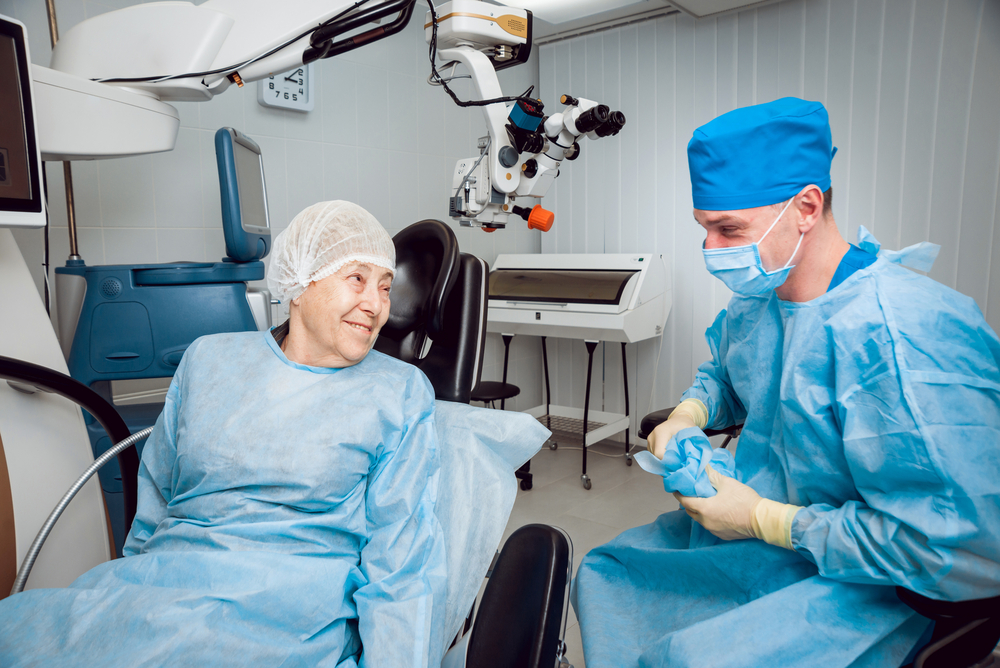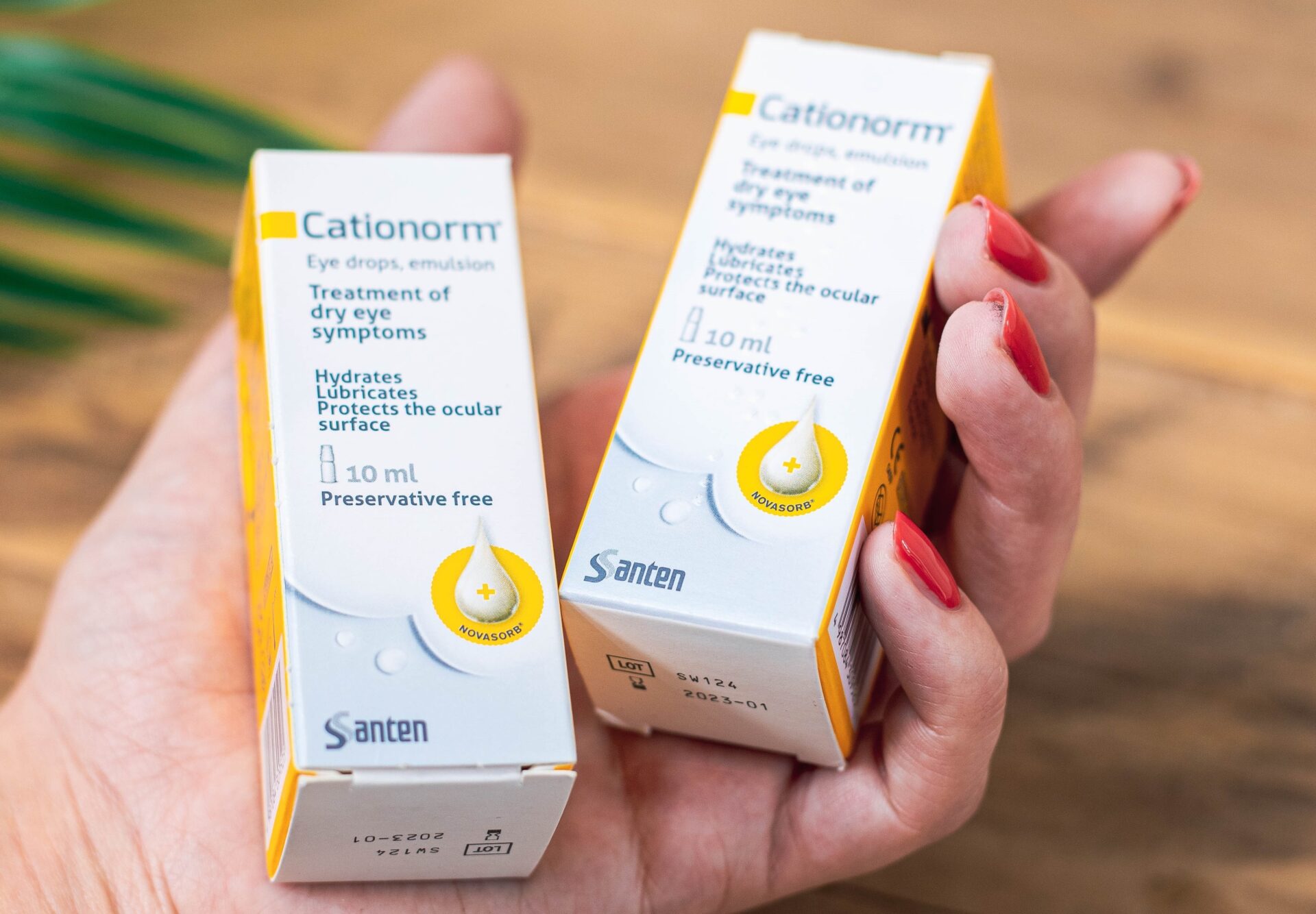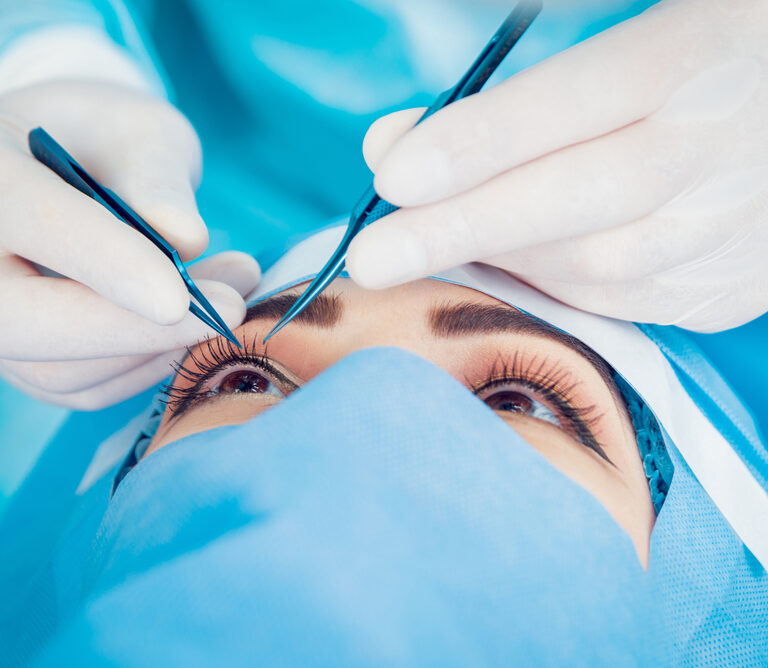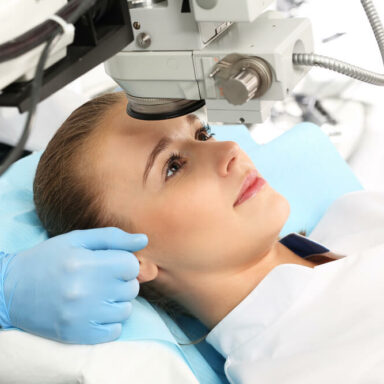If you’ve just had cataract surgery, you might be celebrating the clouds finally clearing, only for dry eye to rain on your parade. It’s very common. In fact, studies suggest that between 50 – 75% of people with cataracts also have dry eye or another type of pesky eye disease such as blepharitis or allergic conjunctivitis (that’s before having cataract surgery)!1
The only way to treat cataracts is through surgery.2 Surgery is quite safe but, like any treatment, it can have side effects, and one of these is dry eyes.3
Did you know?
In the UK, around 1 in 3 people over 65 will experience at least 1 cataract.4
Do dry eyes get worse after cataract surgery?
For those who already have dry eye, cataract surgery can make it worse.3 You can also develop dry eye even if you didn’t have it before.3 A study in 2019 found that 42% of participants who had cataract surgery developed dry eye.3
Did you know?
Cataract surgery is the most common surgical procedure performed in developed countries.5
What causes dry eyes after cataract surgery?
The tear film, a blend of water, mucus, and an oily layer, bathes and shields our eyes.6 Cataract surgery can alter the balance of this tear film, leading to dry eyes.7 But there’s more to it:1
- Inflammation: Surgical incisions can create inflammation, slowing tear production.
- Medicated eye drops: Pre-and-post-surgery drops, such those containing anaesthesia or antibiotics, can slow healing and sometimes irritate the eye.
- Irrigation and lighting: Saline solution used for cleaning and microscope lights during surgery can disrupt the tear film.
Cataract surgery is usually quick, successful, and you can generally return to normal activities in a few days or weeks – make sure to follow your doctor’s guidance on how to protect your eye and help it heal.8,9
The surgery can enhance your quality of life and reduce the risk of falls, fractures, and accidents.10,11,12

Did you know?
As cataract grows, it can seem like you’re looking through a frosty window.13 It progresses slowly but can lead to total blindness if left untreated.14,15
How long do dry eyes last following cataract surgery?
Most people who have cataract surgery, experience dry eye, with one study reporting that more than 92% had symptoms after one week.16
Luckily, the symptoms are usually mild, but they can last for 1 – 3 months.3,17You’re likely to be over the worse symptoms after the first week and then you’ll notice a significant improvement after a month.3
Symptoms of dry eyes following cataract surgery
You may feel like there’s something gritty in your eyes, general discomfort and tiredness in the eyes and redness in the eyes.3 You may also notice some changes in your vision like blurriness, halos and glare around lights at night.18
How do you treat dry eyes after cataract surgery?
The simple go-to treatment is artificial tears.7 They add extra moisture to your eyes, are readily available at pharmacies, and can be used as needed.19
Top tip
Cationorm® artificial tears are clinically proven to restore moisture, protect and relieve discomfort, and suitable for mild-to-severe symptoms.20,21,22,23 It uses ionic technology to lock its positively charged formula to the negatively charged surface of the eye.24 That means you may not need to reapply them as often as alternative eye drops.24,25,26

Always read the label.
These lifestyle tweaks can help too:
- Screen time: Use the 20-20-20 rule – every 20 minutes, look at something 20 feet away for 20 seconds.27,28
- Sunglasses: Wear them outside to protect your eyes from wind and intense light.27
- Hydrate: Aim for at least 8 glasses of water a day – it helps maintain tear production.27
- Air quality: If you live in a dry environment, consider using a humidifier.27
Did you know?
In studies of older people with dry eye, the condition was found to significantly impact daily tasks such as reading, using a computer and driving.29
Can I prevent dry eyes after surgery?
You might not completely avoid dry eyes, but there are ways to lessen the chances of symptoms:1
- Pre-surgery eye check-up: A thorough eye exam before surgery can catch any existing dry eye issues.1
- Lifestyle adjustments: Avoid habits that could worsen dry eyes, such as spending time in smoke-filled spaces.27
- Medication review: Discuss your current medications with your doctor to see if any might be causing dry eye symptoms.1
- Use artificial tears: Applying preservative-free artificial tears, like Cationorm a few weeks prior to surgery can help prepare your eyes.30
- Prioritise lid health: Good eyelid hygiene improves tear quality. Try warm compresses, gentle lid massages, and baby shampoo lid scrubs.31

Did you know?
Some doctors estimate that two-thirds of the optical power in your eye comes from the surface.1
When should you see a doctor?
After cataract surgery, some mild discomfort and dryness are normal. However, get in touch with your ophthalmologist or doctor promptly if you notice any of the following:32
- Severe or escalating pain
- Increasing redness and blurring
- Distorted vision, wavy lines or floaters that weren’t there before
- Swelling of the eyelids
- Worsening vision after surgery




